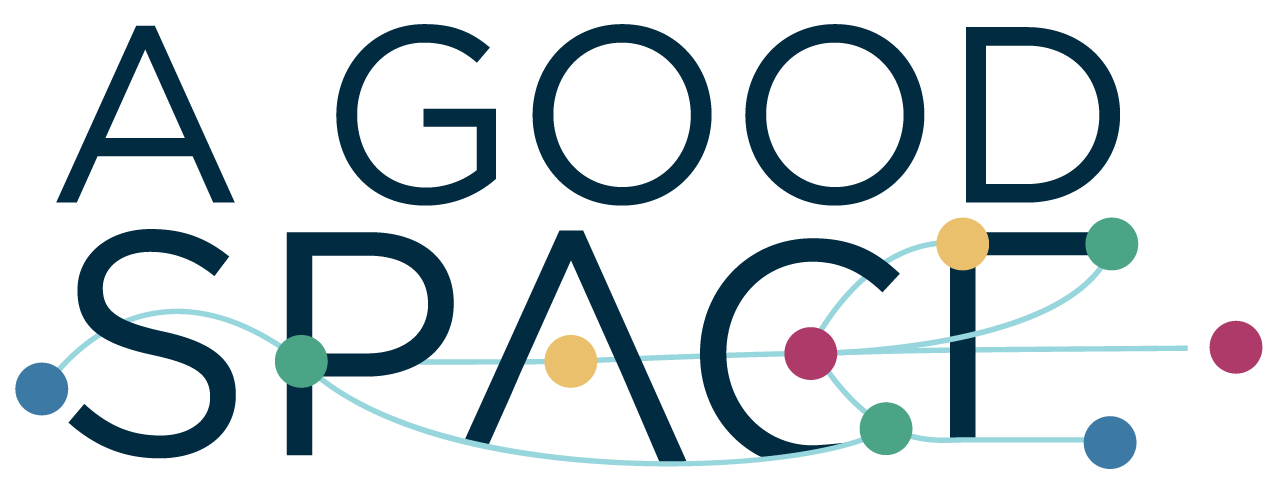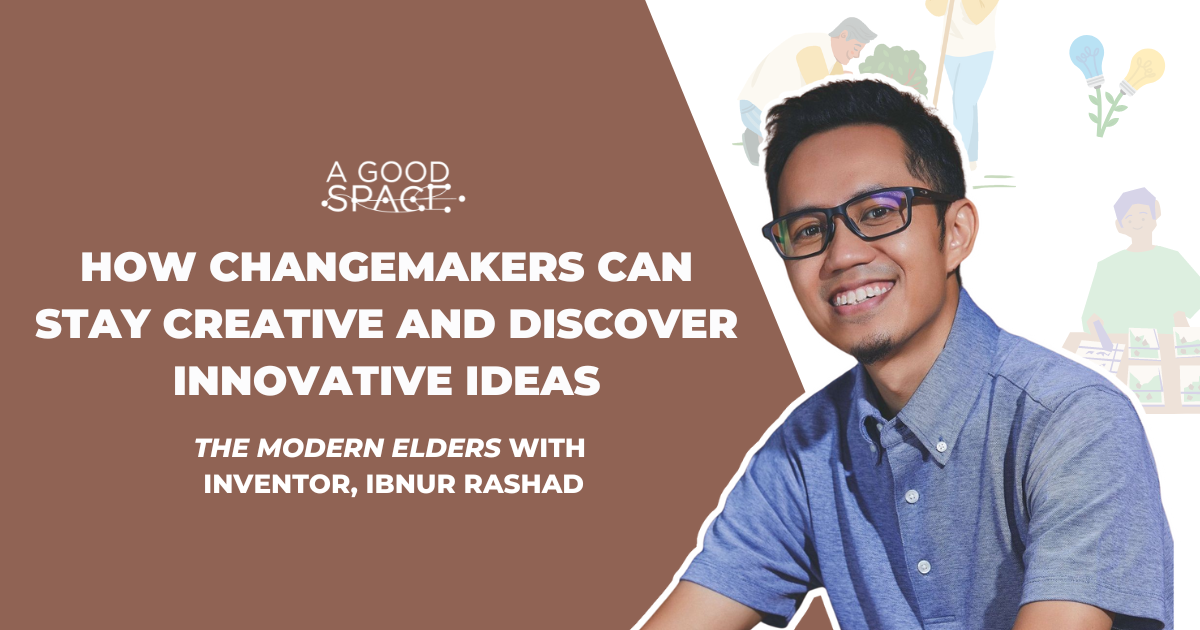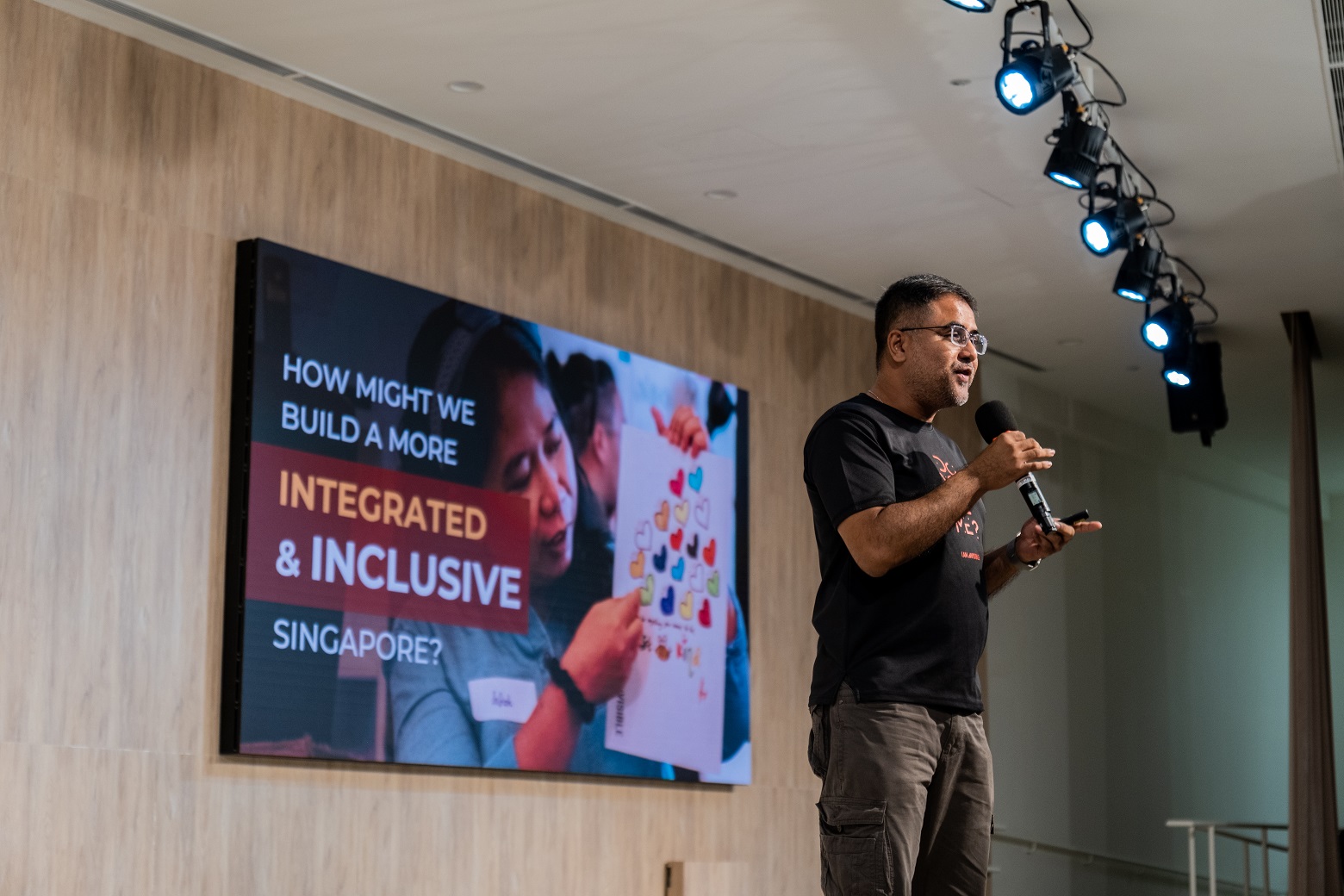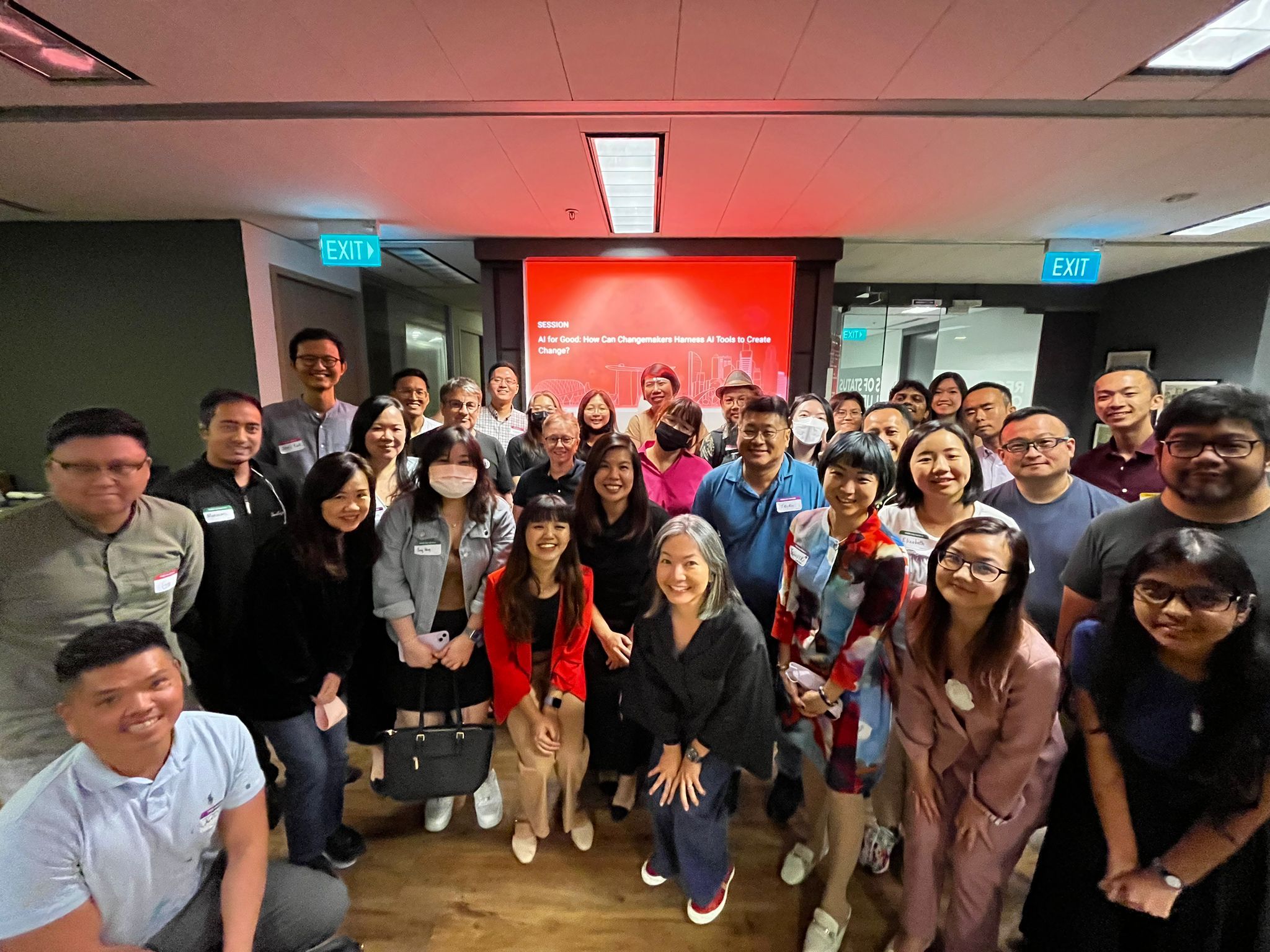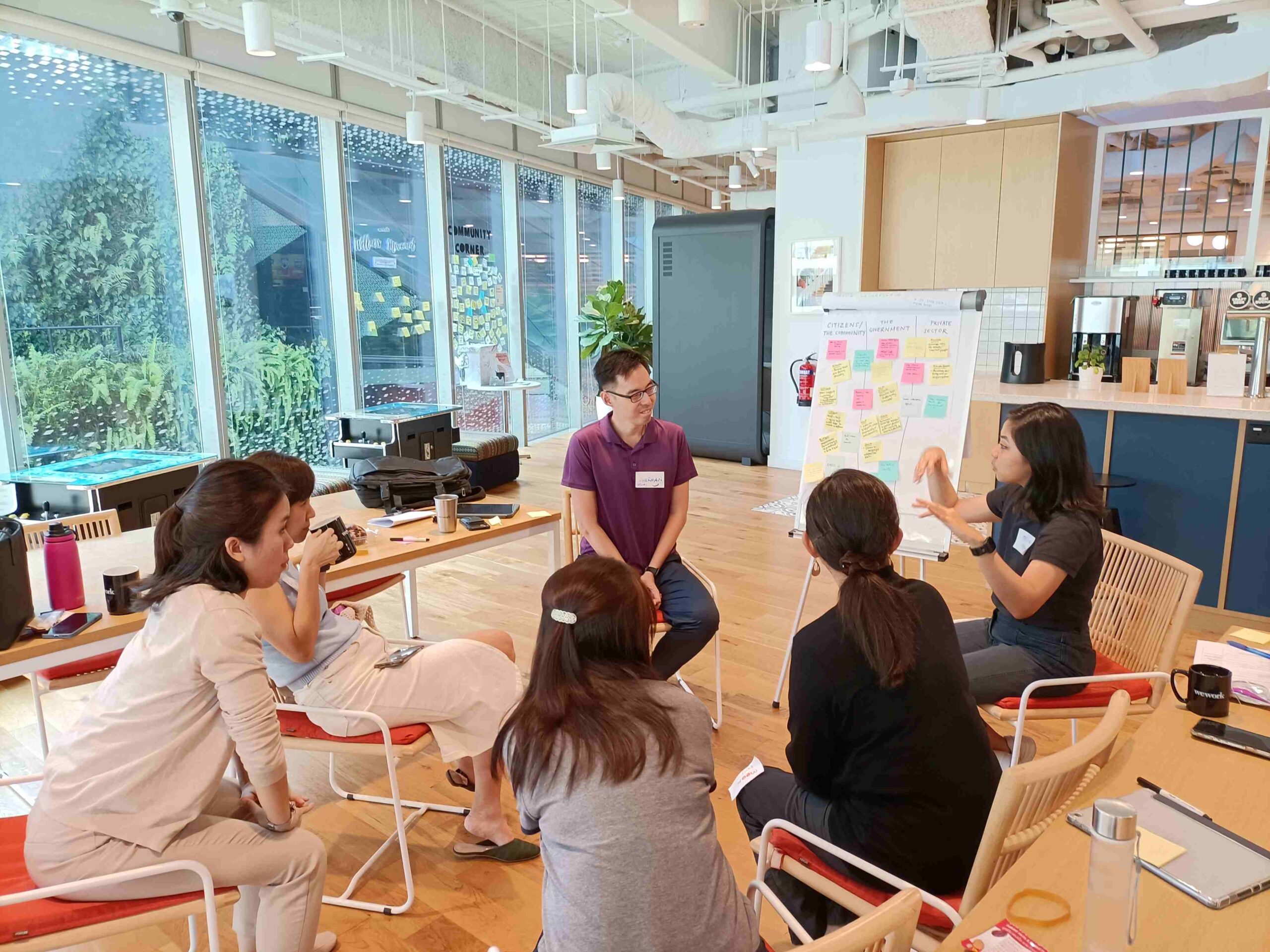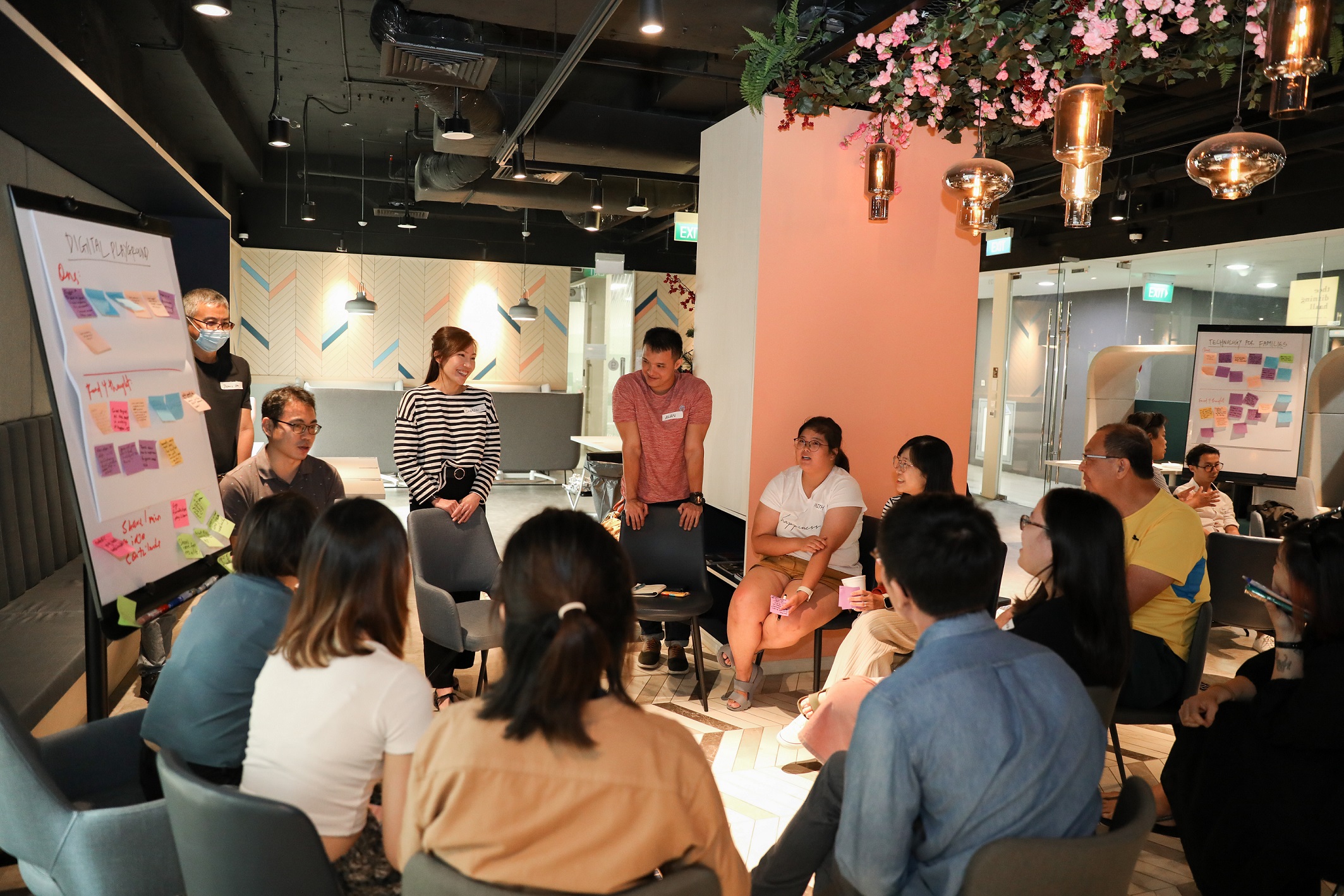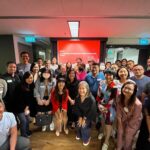What does it mean to be a changemaker?
Beyond having a care for social causes, I believe it is also about understanding the root causes of problems in society and generating fresh ideas to move them forward.
Within AGS and the wider changemaking community, there are many examples of such creative changemakers; whether it is Justin with his Abundant Community Initiative which mobilizes small groups of 5-7 families to ‘top up’ the income of a family with lesser means to provide stability or Daniel and Kian Beng spontaneously creating a 30-day soup kitchen that served 100 bowls of soup daily for free to anyone who needed it at the height of the pandemic.
For me, the AGS member that comes to mind for innovation and creativity is Ibnur. I first met him at our community learning journey to the ImagineIf Bespoke Education Centre. As we walked into the space, many toy blocks were strewn across the floor. While most of us sat down, he instinctively started stacking the blocks and knocking them down, repeating the process and building a new structure each time.
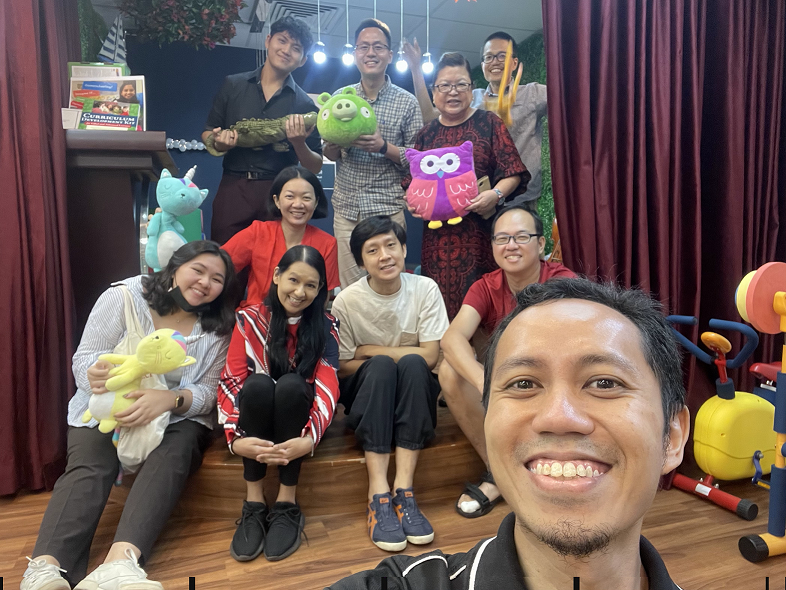
I was in awe of his child-like wonder and curiosity towards even the most mundane of things. I later discovered that this fascination with innovation started young, when he published his first scientific paper and co-invented a novel laser interferometer at just 15 years old!
Later in life, he graduated from the Engineering Science Programme at the National University of Singapore, which trained him in prototyping skills and studied Technopreneurship at Stanford University. “I am fascinated by how inventions can serve humanity and improve the world,” he said.
After setting up various makerspaces in ASEAN and China, he started GUILD (Ground Up Innovation Labs for Development), where he nurtures young inventors through learning experiences that unite nature, technology and community. His latest invention, the floating chinampa, was featured on BBC news.
So we sat down with Ibnur a few weeks ago to ask him: how does he stay creative and find innovative ideas? What tips does he have for changemakers who want to be more creative? Here’s what he said:
Ibnur believes that instead of waiting for inspiration to strike, we can set traps to increase our chances of thinking creative and original ideas.
Here are some of the ways he sets his traps:
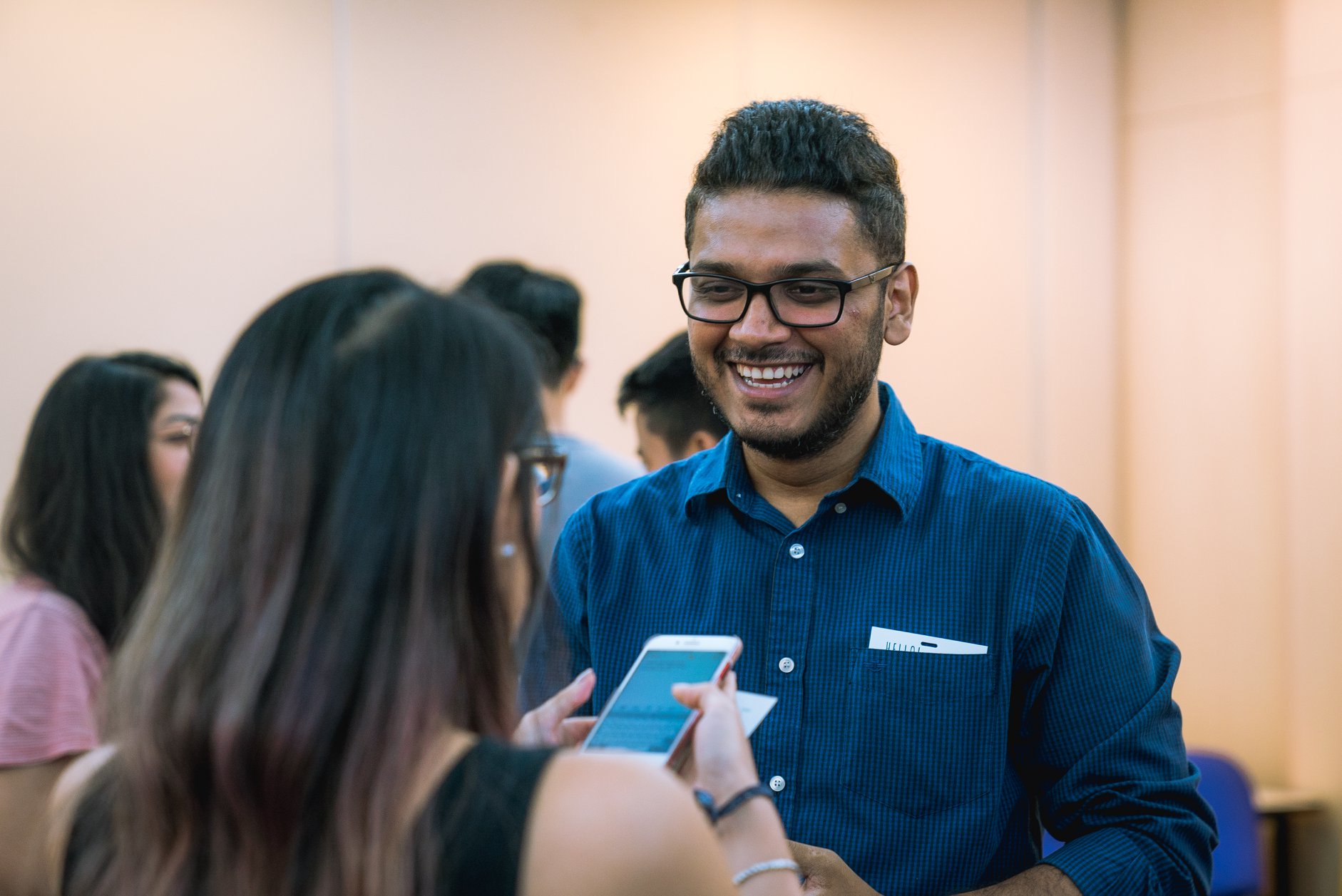
Put yourself in unfamiliar territory
First, he intentionally tries to expose himself to unfamiliar experiences as a way to stimulate his mind to draw new connections. For example, while he typically interacts with vulnerable communities who are low-income through his changemaking work, he also finds time to visit luxury retail shops to observe how they do their marketing campaigns and lay out their items for sale.
He would also visit museums, attend concerts or have conversations with people who have broken boundaries, ranging from artists to ex-offenders, to learn how they think. But sometimes, going out of our comfort zone and what we are familiar with can be really daunting, does Ibnur ever get scared?
“As an introvert, it scares me all the time! The fear lessens but it never disappears,” he said. But strangely, being different and the odd one out in a particular situation can also increase your chances of adding value.
Ibnur recounted a time when he went to a Fintech conference and told people he was working in agriculture. Immediately, they started imagining ways that Fintech could be deployed in agriculture.
“Because I was the odd one out, people became curious because I was sharing perspectives that they don’t usually come across. And they started coming with new ideas that I never could have imagined!” He said.
In short, don’t limit your growth and learning to the industry you are familiar with. “There is a wealth of knowledge that can be learnt in unlikely places, if we only take the first step to try,” He added.
Think (and tinker!)
Second, whenever he gets excited about an idea, he tries to create something to bring it to life. “I think there is magic when you get crafty – it could be building something, fixing something, gardening, just the act of bringing something to life with my hands helps me to be more creative.
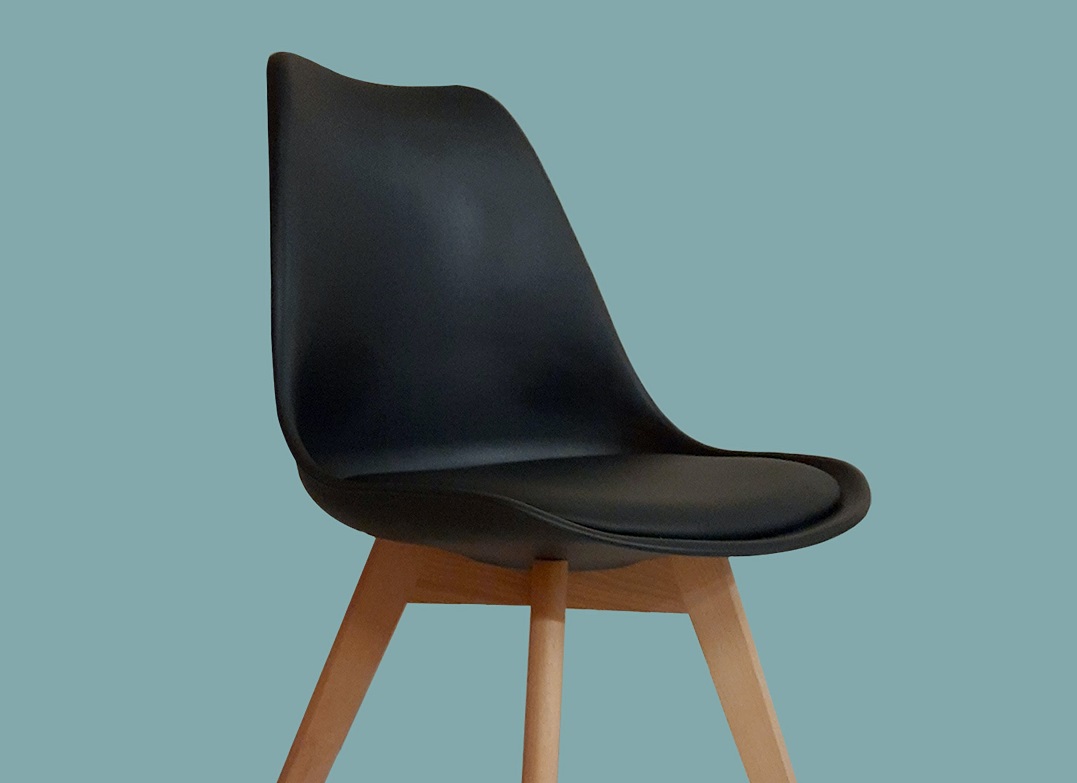
Adopt a Vu Deja Mindset
Most of us may be familiar with the term “Deja Vu” – the sense that you’ve done something before, even if it’s the first time you’ve ever done it. To stay creative, Ibnur encourages people to adopt the Vu Deja mindset.
“Basically it is the idea of seeing a familiar object or routine with fresh eyes, as if we are seeing it for the first time,” he explained. For example, a chair is an object that we interact with everyday and we all have an idea of what a chair is used for. But what if you challenged yourself to imagine 10 new ways to use a chair?
As a paperweight, door-stopper, weapon for self-defense, etc… it doesn’t matter that your ideas seem ridiculous. Getting your mind to practice imagining new possibilities can be very helpful for you to summon creativity when you need it.
In fact, several renowned online writers recommend having this practice, including James Altucher, who wrote about how writing down 10 ideas a day helped to boost his creativity and improve his ability to come up with creative ideas.
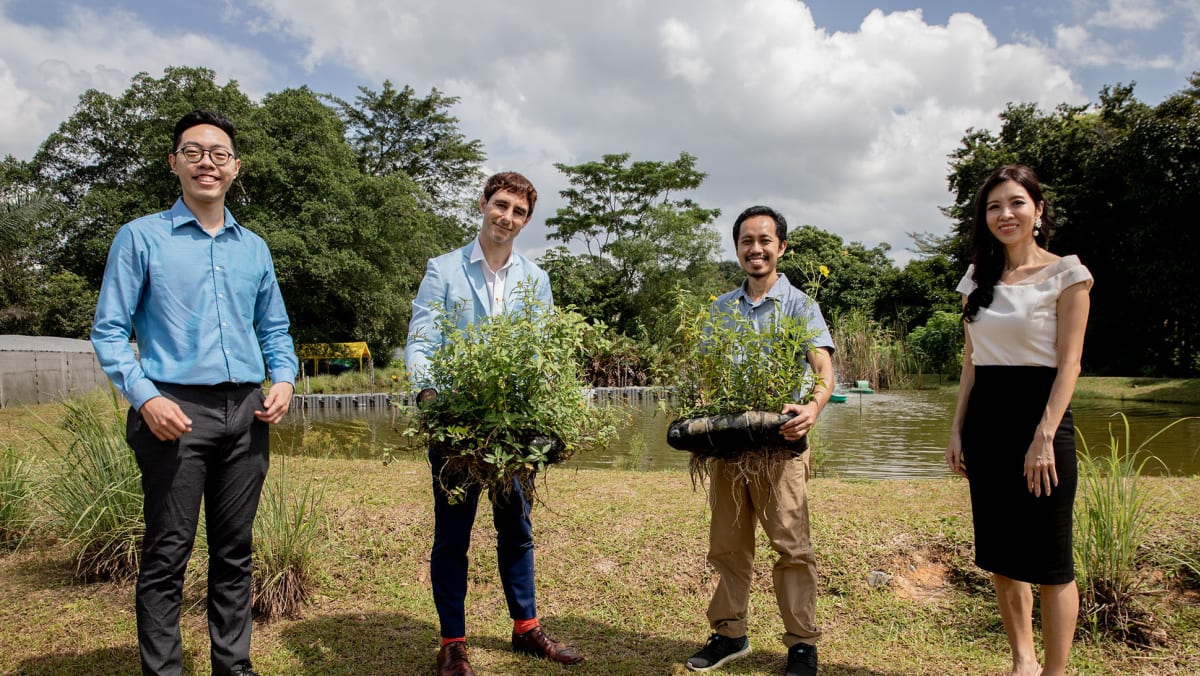
How to stay curious amidst rejection
Anyone who experiments is bound to experience uncertainty, mistakes and rejections. How does Ibnur bounce from challenge to challenge without losing his sense of curiosity and optimism? His way? Find a mentor who can draw out the insight and opportunity from each challenge for you. Ibnur remembered two incidents, where a good mentor was able to do this for him:
The first relates to his award winning invention, the Floating Chinampa, which took almost 10 years of trial and error and countless rejections before finally being brought to life. When he first started, he tried applying to the Public Utilities Board’s Hydropreneur Program to allow him to deploy the Chinampas in reservoirs and lakes in Singapore, but was rejected. “It was quite discouraging but one of my mentors said if Singapore rejects my idea, then why not go overseas and start there?” He recalled.
Eventually, the invention won a gold award at an innovation conference in Taiwan, which gave him and his team the confidence that their invention was valuable. Today, they have secured partnerships with L’Oreal to turn their used cosmetic bottles into Floating Chinampas, which can be deployed in water bodies on the campus grounds of the 3 Institute for Technical Education (ITEs).
“Behind every challenge is wisdom and an opportunity but fishing that out is the difficult part and a good mentor can help you with that,” he said.
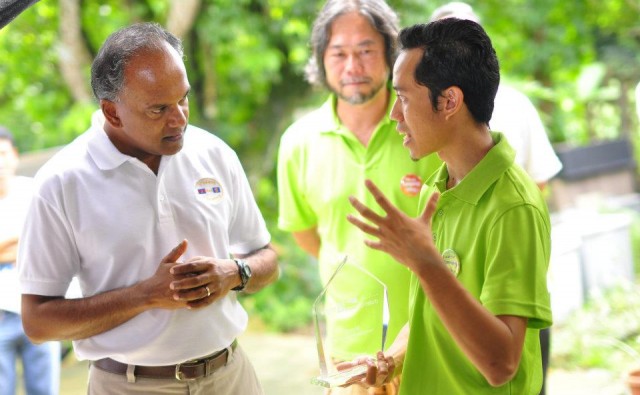
The second incident happened in 2018 at Ground Up Initiative (GUI), a community based organization that Ibnur had volunteered for since he was a youth. GUI occupied a parcel of land in Lorong Chencharu, where they ran several meaningful programs that sought to help people reconnect with nature, themselves and each other, through things like farming, tinkering and upcycling.
That year, the Housing Development Board wanted to reclaim that parcel of land to be redeveloped into apartment flats to serve the growing population. Ibnur remembers several of GUI’s volunteers and staff members being angry and wanting to organize a public petition to lobby the government to stop this reclamation. It was an existential crisis.
With strong emotions like fear, anger, anxiety and sadness floating around, Lai Hock, Ibnur’s late mentor and founder of GUI, suddenly said with a smile: “Let’s organize a carnival!”
“When he said that, the energy shifted from fear to possibility,” recalled Ibnur. The GUI community rallied to save their Kampong, organizing a variety of family friendly activities on the land and inviting different Ministers and Members of Parliament for Nee Soon GRC to come plant trees, build things and experience the transformative experience of nature and the Kampong.
The day’s activities ended with the Ministers and MPs being invited to dip their hands in paint and leave their handprints on a wall. A few weeks later, GUI was informed that they could keep the land.
A good mentor can help you invert a problem to see the wisdom and opportunity hidden within it and Ibnur credits this for helping him stay the course amidst the countless rejections he has faced along the way.
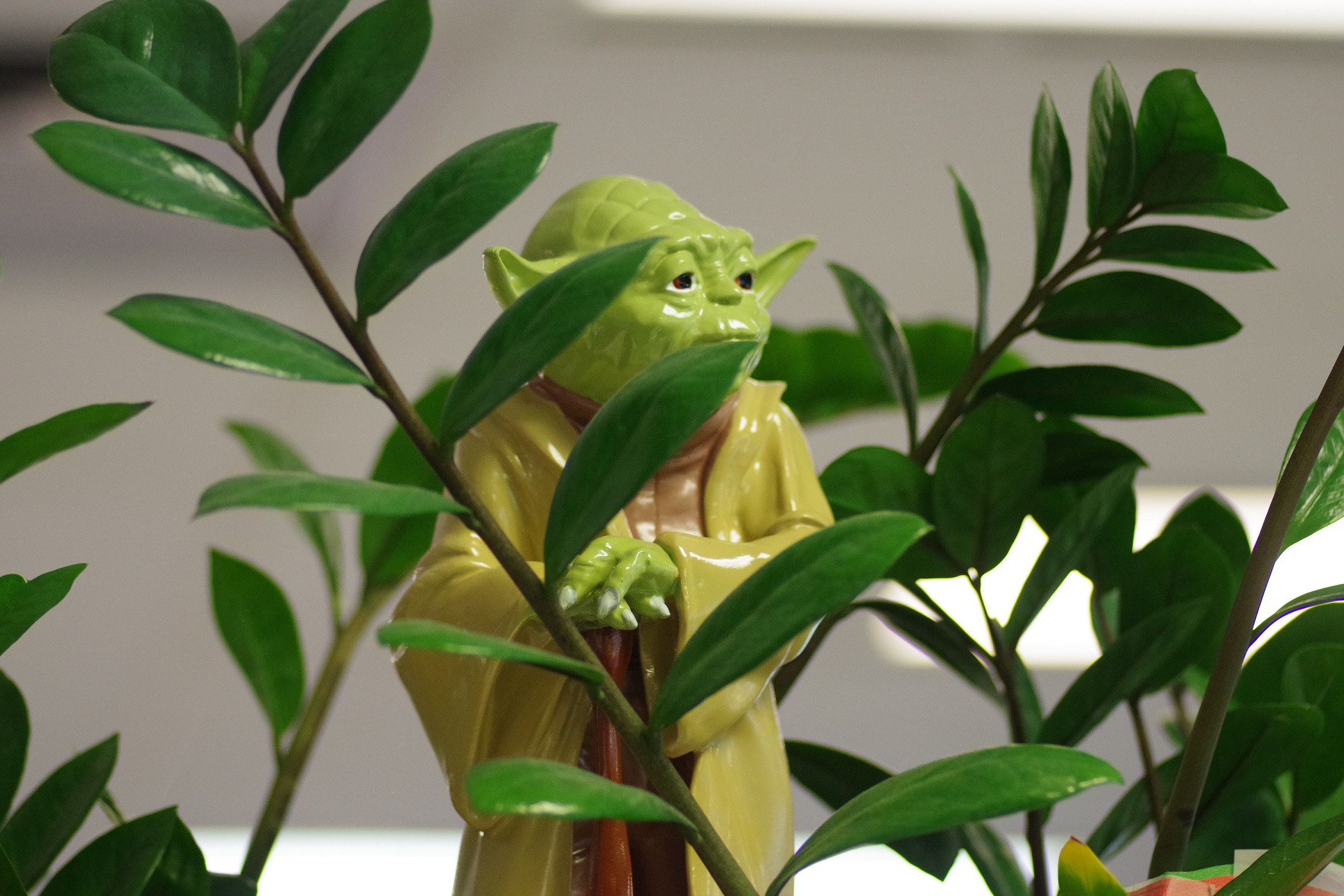
How to find a good mentor?
But how does one find a good mentor who can assist us in this way? “Sometimes it is not you who finds the mentor, but the mentor who finds you when the time is right!” he said with a laugh. He suggests starting with the belief that mentoring is a two-way street – that a mentee can also share new insights with the mentor. Therefore, Ibnur makes it a point to consciously share new insights he is learning with his mentors to foster a mutual-learning relationship.
“Some of the deepest conversations I had with Lai Hock were in his van when he sent me home after a long day. He’d share his experiences from his travels and the corporate world and ask me questions about Islam and the Malay civilization,” he said.
More practically, he suggests finding a mentor by doing either of these two things: (i) volunteering with them or (ii) being present at workshops they are facilitating or events they are running. This helps you to start building a relationship and rapport with them, which you can eventually turn into a mentor-mentee relationship.
Also, he believes it is a good idea to get a mentor who has a skillset which you lack. For example, Ibnur has been having conversations with mentors who are strong in sales, which is very different from the changemaking and charitable spaces that he typically operates in.
Conclusion
What are some ways that you do to stay creative and find innovative ideas? Do you already practice some of the things that Ibnur does? Share them with me, I’d love to learn from you!

Rae Chew
Rae is a Digital Marketing intern at A Good Space. She loves taking film pictures & re-watching all 11 seasons of Modern Family
